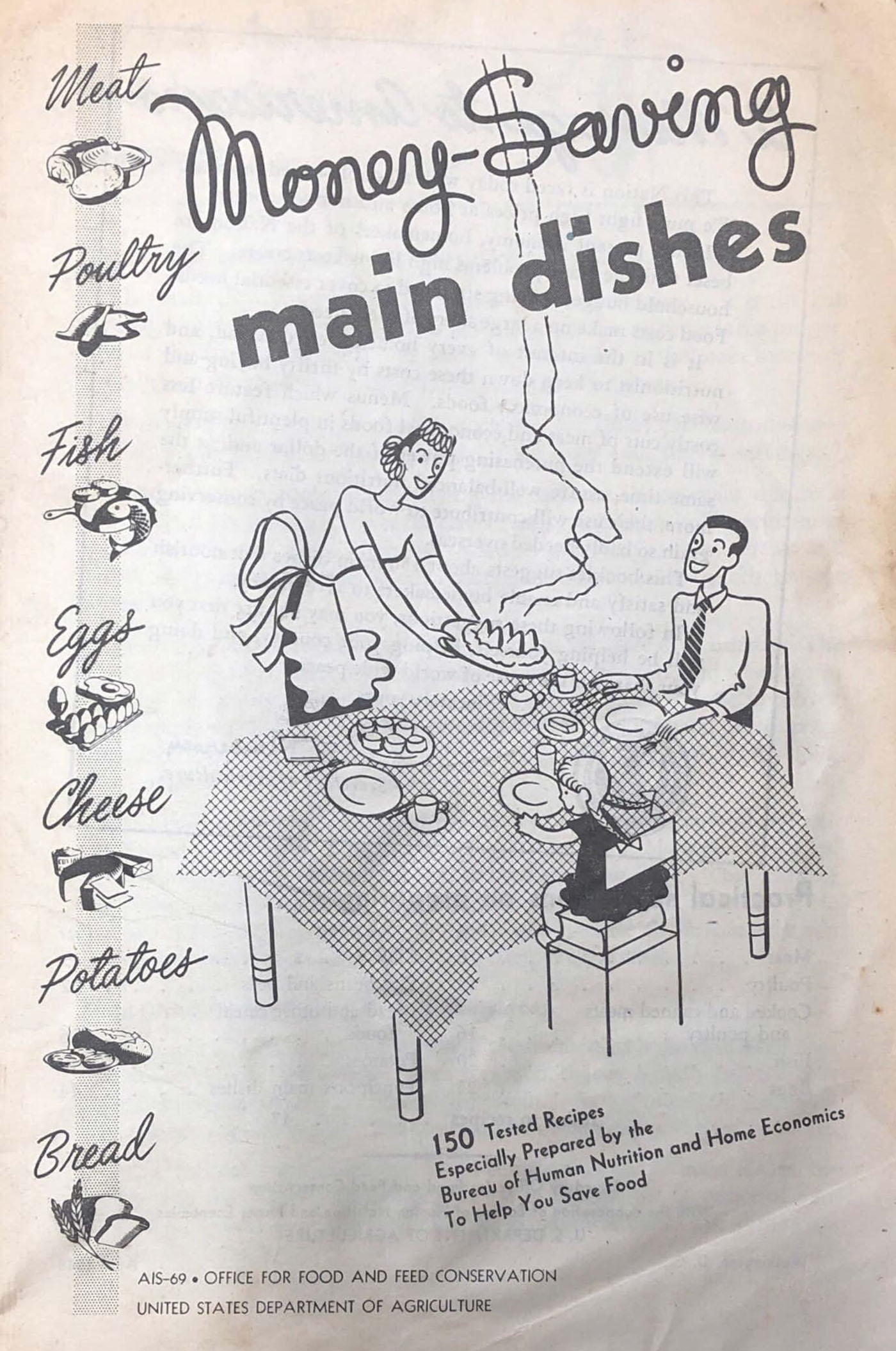This post was written by Colleen Gerrity, Reference Assistant.
For the past three months, the people of the United States have stayed home due to the ongoing pandemic. Going to your favorite restaurant for a nice meal or socializing at a coffee-shop is temporarily a thing of the past. Now forced to fend for themselves in the kitchens, Americans across the nation have cracked open the cookbooks that have been collecting dust for years, strapped on their oven mitts, and got to work. Perhaps you have come across old family recipes written in your grandmother’s handwriting, or a recipe book from the 60’s with your family’s favorite meals bookmarked inside. Food can define a time, place, and generation. I can assure you, someone, somewhere is already attempting to publish a cookbook packed with “quarantine family-favorites.” Food is a part of who we are, and cookbooks hold the power to document a part of history. At Special Collections, we have an extensive array of cookbooks that any foodie would love to get their hands on. Let’s journey back to 1909 with The Laurel Grange Cookbook.

Grange, Laurel. The Laurel Grange Cook Book, TX715 .L38 1909, Special Collections Research Center, George Mason University Libraries.
If you find yourself searching for the perfect cookbook, this might be the one for you. From bread and breakfast cakes to salads and puddings, The Laurel Grange Cookbook has what you need for every occasion. Ladies across the nation submitted their signature recipes to create a simple, yet extensive cookbook for the early twentieth-century family. Refrigerators for the home were not common at this time, so expect to find a section all about pickling peculiar food items. These old fashioned recipes also include concoctions for cough medicine, pain relief, and dealing with bunions.



For 25 cents in 1909, which would cost $7.09 in today’s dollar, I say you got your money’s worth.
Fast forward to 1938, America is moving past the effects of the Great Depression, and things are getting fancy. The Williamsburg Art of Cookery (TX715 .B946 1938) is coined the “Accomplished Gentlewoman’s Companion.” This cookbook begins by defining the importance of Virginia hospitality and proceeds to share high-class, elegant recipes. Perhaps this cookbook would have been essential to a lavish party or a sumptuous family. Calf’s head soup, snail broth, quail, and stewed rabbit are among the menu for the owner of this cookbook. I wonder how the children of 1938 felt about these recipes…

Bullock, Helen Duprey. The Williamsburg Art of Cookery, TX715 .B946 1938, Special Collections Research Center, George Mason University Libraries.
Ending our cookbook journey in 1948, allow me to introduce you to Money-Saving Main Dishes. Unlike the usual cookbook, written by housewives or esteemed chefs, this cookbook was created by the US Bureau of Human Nutrition and Home Economics.

United States. Bureau of Human Nutrition and Home Economics. Money-Saving Main Dishes, TX715 .M65 1948, Special Collections Research Center, George Mason University Libraries.
Two-years since World War II has ended, a note from the Secretary of Agriculture notes the “double-edge problem” of high costs of living and food. The American people needed a practical and cost-friendly cookbook. Emphasized here are classic recipes for grocery store staples. Something interesting about this cookbook is the focus on budgeting. An entire page is dedicated to the amount of food you should purchase to provide the proper nutritional value, in addition to the amount you should cook to prevent wasting food or money. Of the three cookbooks, this is the first to introduce new flavors, such as sweet and sour sauce and curries, indicating an expansion of the American palate. While this cookbook may not have the fun and frills of its competition, it has the practicality and economic mindset that people need.
Food is an essential part of life, and cookbooks provide a glimpse into history through the lens of food. Recipes hold deep meaning and can tell the reader a great deal about the chef’s values and mindset. Whether for gourmet eating or quick meals, cookbooks are an interesting and exciting look into the past. Perhaps years from now, someone will take a look at the “quarantine cookbook” and see what people were cooking up in 2020. What will the recipes we follow today say about us later?
Follow SCRC on Social Media on our Facebook, Instagram, and Twitter accounts. To search the collections held at Special Collections Research Center, go to our website and browse the finding aids by subject or title. You may also e-mail us at speccoll@gmu.edu or call 703-993-2220 if you would like to schedule an appointment, request materials, or if you have questions.






